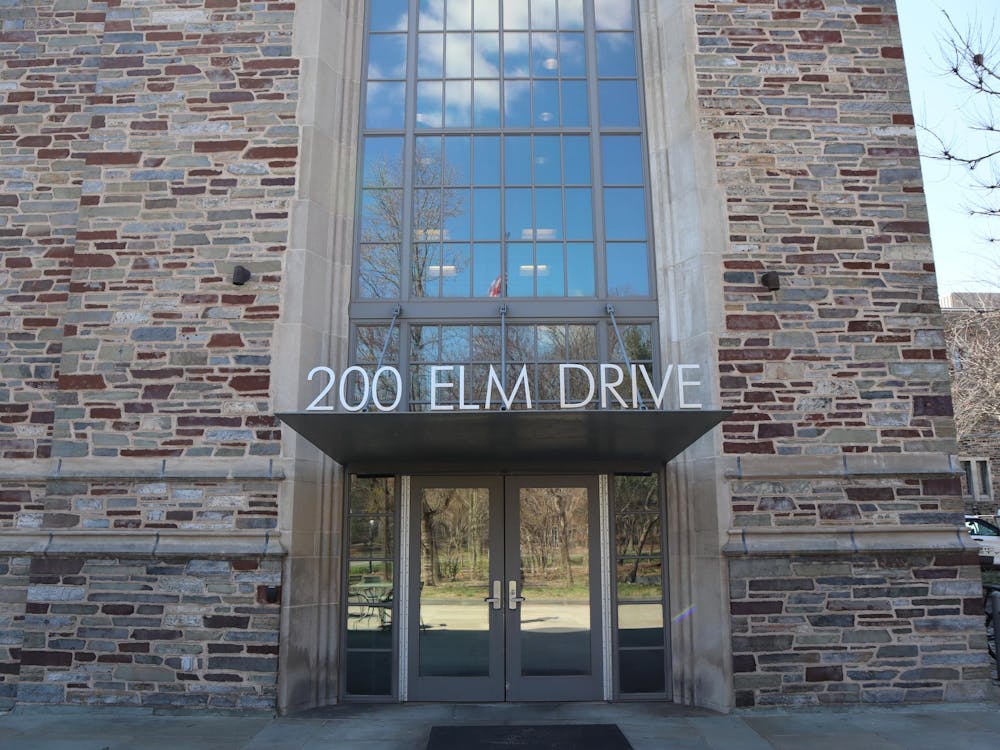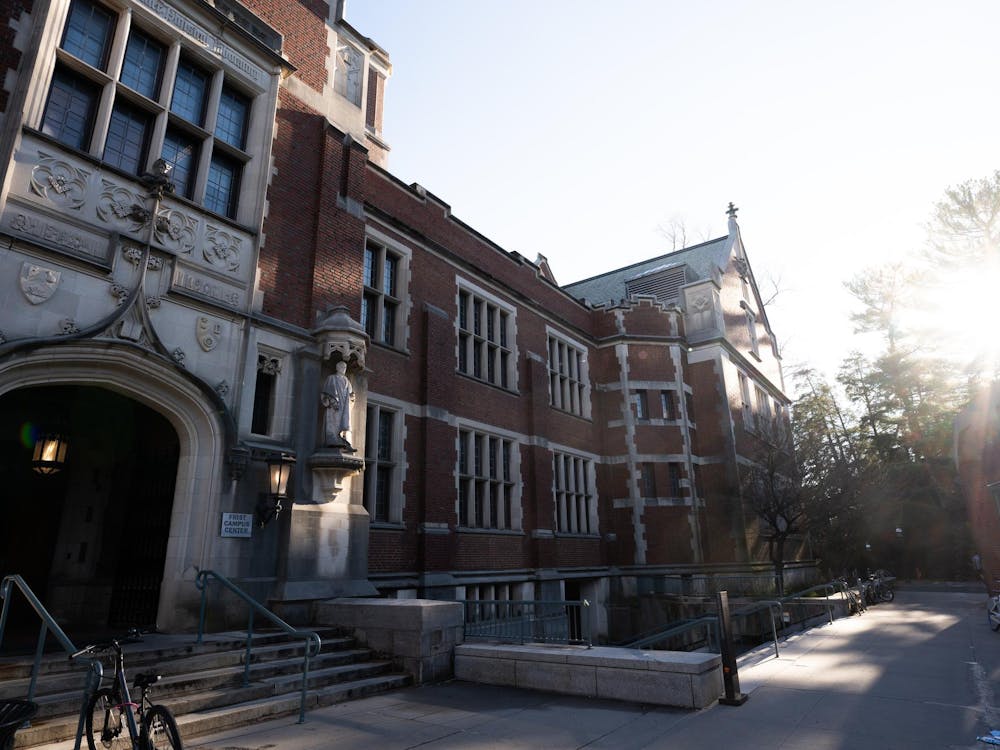Over 200 graduate students have signed a petition protesting the demolition of Butler Apartments under the University’s Housing Master Plan. The petition demands increased transparency and communication about graduate housing from the administration.
The petition expresses disapproval of what students see as a current lack of on-campus housing options, citing excessive pressures placed on older students, whose stipends are ending, and Princeton’s limited housing market as factors that will undermine the unique graduate community.
“The closure of Butler Apartments without specific plans for reconstruction is imprudent, unnecessary and ignores the needs of graduate students with limited income, with pets or with partners and/or children,” the petition reads. It calls for Butler to remain open until an adequate alternative is found.
The Housing Master Plan, formulated in 2005, seeks to enhance housing programs for faculty, staff and graduate students, according to the plan website. The University aims to provide campus housing to 70 percent of regularly-enrolled graduate students and is constructing a new complex, the Lakeside Apartments, to replace the outdated 1960s-era Hibben and Magie Apartments, which closed in 2012. Students displaced by the Lakeside construction are currently being accommodated in Stanworth Apartments, which will be developed into permanent faculty and graduate housing when Lakeside opens next fall.
However, the plan also requires the demolition of Butler Apartments by summer 2014 with no plans for rebuilding. Current Butler and Stanworth residents will receive priority places at Lakeside Apartments. Nonetheless, the demolition decision has met resistance from Butler residents.
Although the University says it will house a greater proportion of the graduate student body on campus than do its peer institutions, petition supporters argue that 70 percent is too low a target. The expense and shortage of rental units in the Princeton area especially creates obstacles for graduate students with families seeking off-campus housing, petition co-sponsor Andrew Edwards, a second-year Ph.D. candidate and Butler resident, explained.
Co-sponsor Alex Chase-Levenson, a fourth-year Ph.D. candidate and Butler resident, noted that the Housing Plan will reduce the number of two-bedroom units from about 375 in Butler and Stanworth combined to 84 in Lakeside. While administrators implied students could move from two-bedroom into one-bedroom apartments to offset the higher rent of the Lakeside apartments, he said, such an option would be impossible for families; instead, they would need to pay more to live both on- and off-campus.
According to figures released to Butler residents by the Housing Office, a two-bedroom Butler unit costs between $862 and $984 per month, compared to $1,546 for a two-bedroom in Lakeside. Only 74 rental units in all of Mercer County fall within the Butler price range, Edwards said, citing the U.S. Census Bureau American Community Survey.
The insufficiency of on-campus options "is unfair and hurts students in their final years of study, when their money is running out, when they need to be on campus for teaching duties and when they need to finish their dissertations," Chase-Levenson added.
Petition sponsor Meg Leja, a fourth-year Ph.D. candidate and Butler resident, said the University should keep Butler open while it has no plans to develop the tract of land. She said she has benefited from her proximity to campus in affordable housing.
"We want to be able to meet with our undergrad students as much as we can. We want to be able to meet with our advisers, we want to go to talks at the University and we want to be able to use the library. And you know, the further you have to live from campus, the less likely you are to be able to do those things," she said.
Other advantages of living on campus include the ability to form reading groups and working alongside the people you will work alongside for the rest of your life, Edwards said. "Building those relationships is the reason you're in grad school. We're not autodidacts. We're here to learn from the teachers, who are here, and to learn with the students that are here."

In response to the petition, University Spokesperson Martin Mbugua said the University appreciates the students' concerns, but that many of them are based on misconceptions. Contrary to some petitioners' claims, he said, the number of beds in on-campus housing will remain the same after the transition from Butler and Stanworth to Lakeside.
Petition supporter and sixth-year Ph.D. candidate Zachary Kagan Guthrie was unable to retain on-campus housing in 2012 due to his low-priority housing status. The University gives preference to students in their first three years.
Guthrie said the loss of his Butler unit reflects an initiative on the part of the administration to rid themselves of as much oversight of graduate housing as they can.
"They're trying to lower the percentage of grad students they house. They turned over Hibben-Magie to developers who have not been very responsive to graduate student input about what kind of units they want to see,” Guthrie said. “They're taking Butler offline, and that land is really valuable -- I mean, Princeton land is expensive, and they don't have any plans to do anything with it as far as I know."
In practice, Guthrie said, living off-campus in nearby Kingston has made his teaching schedule less flexible. "If undergrads want to meet with me at night, that's not going to happen. I mean, I'm not going to bike to campus at 6:00 to meet with someone. It just means that I have a more defined schedule, which undergraduates have to work around."
Edwards predicted the housing situation will also deter future prospective graduate students from choosing Princeton. He added that as a matter of trust, he and his peers need to "preserve the graduate student experience at Princeton for those who are going to come after."
First-year Ph.D. candidate and petition supporter Elaine Ayers said she almost chose another university because of Princeton’s undesirable housing options. Ayers said she did not feel the quality of University housing was worth the price and had difficulty in finding off-campus housing before settling on her studio apartment two miles from campus.
The University funds that students receive, along with other resources such as housing, are an important factor in choosing graduate schools, Stanworth resident Mayank Misra, a second-year Master of Public Affairs candidate, explained.
Misra chose to attend the University over Harvard in part because the living expenses here are cheaper than those in Cambridge. "One of the great things about being [at Princeton] is that they make sure that you're fairly sorted so that you can concentrate more on your work. So I would think that this would just cause so many impediments ... and housing isn't easy to negotiate anyway."
Many other prospective students were concerned during recruiting efforts last year, Guthrie said. "A lot of people in their 20s and 30s don't necessarily want to spend five or six years in a small town, and that goes double if you're paying the same prices that you would be in a major city," he explained.
Current students told the prospectives they could move if they had to, Guthrie said. "It's hard to tell someone, 'Uh, yeah, you should come here and you know, you're not necessarily going to get a very good rental unit, and if you can't get one, you're going to have to pay a ton of money to live off-campus, or you're going to have to live in a tenement.' It's easier to say that you'll have options, but those options are moving away."
While the University does have a website with listings for off-campus housing, Mbugua noted that it will further develop resources for finding off-campus housing.
"We continue to find ways where we can continue to provide effective services to students, and we'll continue to discuss with them and make any changes when necessary and feasible," Mbugua said.
Chase-Levenson said the petition sponsors thought the time ripe for change because of the recent installation of University President Christopher Eisgruber ’83 and the expected appointment of a new dean of the Graduate School next spring. Edwards added that the petition comes after a series of failed negotiations with administrators.
"What we're trying to think about is, 'How do we get the administration to respond to our concerns?' And we think the only way to do that, more or less, is to gather graduate students behind some sort of resistance to what's happening," he said.
Though the petition sponsors criticized the University’s communication regarding housing, Graduate Student Government President Friederike Funk called the GSG’s relationship with the administration “cooperative” and “collaborative.” She said officials have been “very open” to the suggestions brought forth by the students.
Funk said the GSG decided not to circulate the petition, though officers advocated for keeping Butler open in the past until the administration explained the reasons it must close. She encouraged those struggling with housing to approach the GSG. “I think that might be a better way than just starting own initiatives, because then we can put all those ideas together and create something effective out of it.”
Funk acknowledged the importance of expressing student opinions on the housing plan to the University. “We want to make sure that people who might be afraid that they cannot afford the new housing at Lakeside, that we can make their voice heard at the university level,” she said.
The petition sponsors a plan to meet with the administration and continue gathering signatures in hopes of preventing the demolition of Butler, Chase-Levenson said.
Correction: Due to a reporting error, an earlier version of this article misstated the name of the Graduate Student Government. Due to an editing error, an earlier version of this article mischaracterized the GSG's involvement with the petition before its circulation. The GSG was consulted about the petition, but decided not to circulate it. The 'Prince' regrets the errors.








